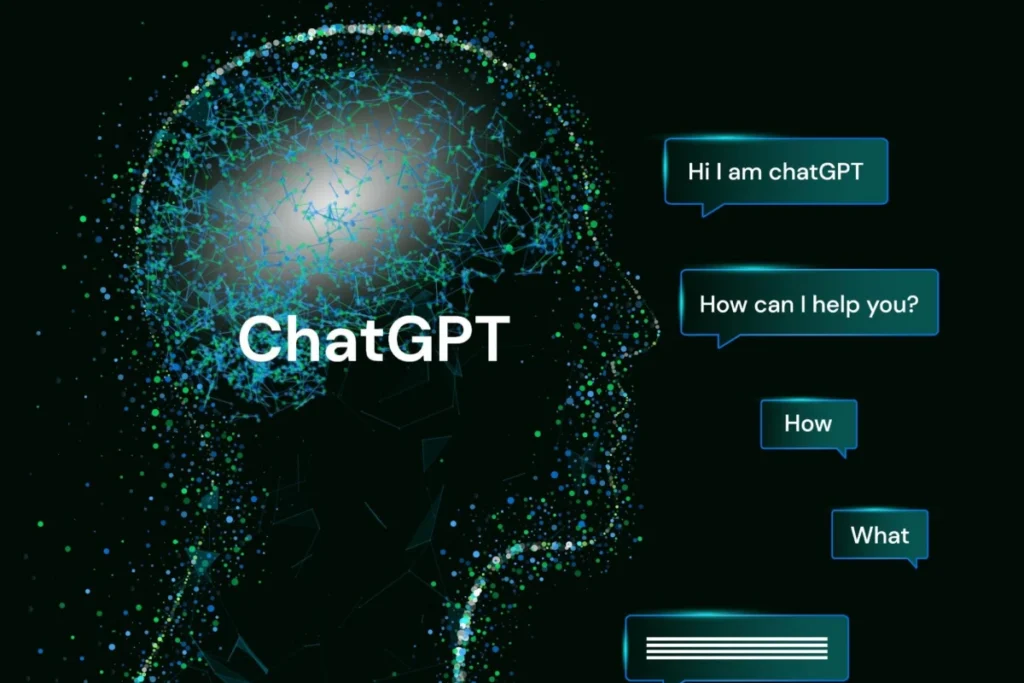The world of online search is growing faster by the minute as ChatGPT, the AI sensation that’s been making waves since its release, steps into the search engine arena. Could this be the next Google? It’s a question that’s got tech enthusiasts and everyday internet users alike sitting up and taking notice. When a tool that’s already revolutionized how we interact with AI decides to take on the giants of search, it’s bound to cause some market disruption.

This content aims to explore what makes ChatGPT’s search engine tick and how it stacks up against the traditional search engines we’re accustomed to. We’ll also take a look at what this means for how we access information online, the hurdles this new AI search might face, and the bigger picture of AI’s role in shaping our digital landscape.
The AI Search Revolution

Brief history of search engines
The journey of search engines has been nothing short of revolutionary. In the early days of the internet, users relied on simple keyword-based searches to find information. These early search engines functioned by indexing web pages and using algorithms to rank them based on factors like keywords, site authority, and user engagement.
As technology advanced, so did the capabilities of search engines. The introduction of semantic search marked a significant leap forward. This approach takes into account the meaning and context of words and phrases, allowing search engines to provide more accurate and relevant results. By understanding user intent, AI-powered search engines can better match queries with the most suitable content, leading to improved user satisfaction.
The rise of AI in technology
Artificial Intelligence has been a game-changer in the world of technology, and its impact on search engines has been profound. The idea of AI goes back many years, but it’s in recent decades that we’ve seen it truly come to life.

In the 1950s, the term “artificial intelligence” was coined, and the field began to take shape. The period from the late 1950s through the 1960s saw rapid growth in AI research, with the development of programming languages and the exploration of AI concepts in books and films. The 1980s brought an “AI boom,” fueled by breakthroughs in research and increased government funding. Deep Learning techniques and Expert Systems became more popular, allowing computers to learn from their mistakes and make independent decisions.
OpenAI’s role in advancing AI
While not explicitly mentioned in the provided key points, OpenAI has played a large role in advancing AI technology. Their work has contributed to the development of powerful language models that have revolutionized how we interact with AI systems.

The introduction of ChatGPT’s search engine marks a new chapter in online search. This AI-powered search engine represents a shift from keyword matching to a more intuitive, conversational approach. It uses advanced Natural Language Processing (NLP) techniques to understand complex user queries, determine user intent, and deliver personalized results.
This release could mean a significant shift in the landscape of online search engines. It has the potential to change how users interact with digital content, emphasizing convenience, relevance, and personalization. As AI continues to advance, we can expect further improvements in search accuracy, more natural language interactions, and even more personalized search experiences.
The future of search engines looks bright, with AI at the helm. As these technologies continue to evolve, they promise to make our online searches more efficient, accurate, and tailored to our individual needs.
Welcome To SearchGPT
SearchGPT, OpenAI’s latest offering, is shaking up the search engine landscape with its innovative approach to finding information online. This AI-powered search engine is designed to make searching the web feel more like having a conversation with a knowledgeable “friend.” Less boring, and more engaging for… better results??

Natural language processing capabilities
At the core of SearchGPT lies its advanced natural language processing (NLP). Unlike traditional search engines that rely on keyword matching, SearchGPT uses AI to understand the context and meaning behind user queries. This means users can ask complex questions or use conversational language, and SearchGPT will still get the gist.
For example, instead of typing “ChatGPT cost,” users can ask, “How much does ChatGPT cost?” The system understands the intent behind the question and provides relevant information. What’s more, users can ask follow-up questions, creating a more natural and fluid search experience. If you’re curious about what you get with a premium subscription, you can simply ask that as your next query.
Real-time information sourcing
SearchGPT doesn’t just understand your questions, it knows how to find the answers. The system scours the internet in real-time, analyzing vast amounts of text data to provide comprehensive and up-to-date results. Instead of just throwing a list of links at you, SearchGPT organizes and contextualizes the information it finds.

When you search for something like music festivals, you’ll get a summary of the findings, followed by descriptions of events and links to sources. This approach helps users quickly grasp the key points without having to click through multiple websites.
User interface and experience
SearchGPT’s user interface is designed with simplicity and ease of use in mind. The search process starts with a large text box prompting users with “What are you looking for?” This type of approach sets the tone for a more interactive search experience.

Once you’ve entered your query, SearchGPT presents the results in a clean, ad-free interface. The information is organized into categories, making it easy to navigate and understand. Users can explore additional relevant links through a sidebar, allowing for a more in-depth investigation of topics.
One of the standout features is the ability to refine search results through follow-up questions. As you ask more questions, the shared context builds, leading to increasingly relevant and personalized results. This feature mimics a real conversation, making the search process more intuitive and engaging.
SearchGPT also includes a “visual answers” feature, although specific details about this functionality weren’t available at the time of release. However, it’s clear that OpenAI is aiming to provide a more comprehensive and visually appealing search experience.
By leveraging advanced AI technology and focusing on user experience, SearchGPT is poised to revolutionize how we access and interact with information online. As it learns and improves over time, it has the potential to become a powerful alternative to traditional search engines, offering a more conversational, informative, and personalized approach to finding information on the web.
SearchGPT vs. Traditional Search Engines
SearchGPT represents the beginning of a shift in online search engines, offering a fresh approach to information retrieval that contrasts sharply with traditional search engines like Google or Bing. This innovative tool has the potential to revolutionize how users interact with digital content, emphasizing convenience, relevance, and personalization.

Speed and efficiency
SearchGPT enhances the search experience by leveraging advanced AI models such as GPT-3.5 and GPT-4 to provide direct responses to user queries. Unlike conventional search engines that mostly display links, SearchGPT aims to deliver concise answers with clear source attributions. This approach saves users time and effort searching.
The system combines AI with real-time web information to ensure up-to-date results, delivering fast and precise answers. This real-time data sourcing means users are more likely to get the latest information on a given topic, whereas traditional search engines might include outdated or less relevant information in their vast index of web pages.
Accuracy and relevance
One of SearchGPT’s key differentiators is its ability to provide direct answers to questions. It summarizes information from multiple sources and cites those sources clearly, making it easier for users to get the information they need without having to click through multiple links. In contrast, Google typically presents a list of links to websites, leaving the user to sift through the results and find the info themselves.

SearchGPT uses AI language models to understand the intent behind search queries. This allows it to provide more contextually relevant results, even if the user’s query is not phrased perfectly or uses ambiguous terms. Google’s primary mechanism is keyword matching, which can sometimes lead to irrelevant or less helpful results, especially for complex or nuanced queries.
Personalization and context understanding
SearchGPT uses a conversational interface, enabling users to ask questions in natural language and refine their queries through follow-up interactions. This creates a more dynamic and interactive search experience. In contrast, Google relies on traditional keyword-based search, where users enter search terms and receive a list of web pages.

The system’s ability to understand natural language and context allows for follow-up questions, creating a more intuitive and interactive search experience. SearchGPT maintains context across multiple interactions, allowing users to build on previous questions and receive more personalized responses. This makes the search experience feel more like a conversation with a knowledgeable assistant.
As AI continues growing, expect further improvements in search accuracy, more natural language interactions, and even more personalized search experiences.
Implications for Online Information Access
The release of SearchGPT and similar AI-powered search engines might revolutionize the landscape of online info access. This shift has far-reaching implications for how users interact with content, their search behaviors, and the overall online ecosystem.
Changes in user search behavior
The introduction of AI-powered search engines like SearchGPT is causing a noticeable shift in user search behavior. Traditional search engines, once the go-to tools, are now facing stiff competition from these new answer engines.

Simply put, users are finding it easier to ask specific questions and get results, rather than sifting through multiple web pages from a Google search. This change is driven by the reduced cognitive load associated with using conversational agents. Instead of mentally converting questions into search queries and then visiting multiple webpages to find answers, users can now engage in a more dialog-like interaction.
The ability to ask follow-up questions and leverage context from earlier in the conversation makes the search process more intuitive and efficient.
Impact on digital literacy
As AI-powered search engines become more prevalent, there’s a growing need for enhanced digital literacy skills. While these tools offer convenience and efficiency, they also present new challenges in terms of critical thinking and information evaluation.

Users need to be aware of potential biases and limitations in AI-generated responses. For instance, the phenomenon of “artificial hallucinations,” where AI presents misleading or false information as fact, underscores the importance of verifying information from multiple sources.
Educators have a role to play in fostering digital literacy skills that are adapted to this new search landscape, including teaching students and users how to use AI.
- Critically evaluate AI-generated responses
- Understand the workings and limitations of AI models
- Recognize potential biases in AI-generated content
- Ethical considerations such as privacy & misinformation
Potential for reducing information overload
By providing concise summaries and direct answers to queries, these tools can help users find relevant information without having to wade through vast amounts of data.
However, this convenience comes with its own set of challenges. The risk of anchor bias, where users rely on the first piece of information they receive, could lead to flawed decision-making processes. Moreover, the black-box nature of many AI tools means users might be unaware of the biases or inaccuracies in the responses they receive.
The future of online search lies in striking a balance between leveraging the power of AI and maintaining human critical thinking and evaluation skills.
Challenges and Limitations of AI Search
While SearchGPT has great potential to revolutionize online search, it also faces several challenges and limitations that could impact its effectiveness and adoption. Let’s dive into some of these key issues.
Transparency and explainability of results
SearchGPT aims to provide more explainable results compared to search engines. It plans to list its sources with the summaries it provides, ensuring publishers retain control over their content. This approach could help build user trust and credibility.
OpenAI has also partnered with providers like News Corp and The Atlantic to make sure that high-quality and credible information is available through SearchGPT. This collaboration could help address concerns about the reliability of AI-generated content.
Technical and infrastructure requirements
SearchGPT uses OpenAI’s family of GPT-4 large language models (LLMs) to analyze the language used, the relationship between words, and even the user’s search history. This requires substantial computational power and sophisticated algorithms to function. Moreover, as the system is designed to learn and improve over time, it needs robust infrastructure to handle continuous updates and refinements. This ongoing learning process, while beneficial for improving search results, also demands significant resources and careful management to guarantee consistent performance by the LLMs.
The success of SearchGPT will depend on overcoming these technical challenges, maintaining data quality, and building a robust infrastructure capable of handling the complex demands of AI-powered search.
Is SearchGPT a search engine revolution?
The release of SearchGPT has the potential to cause a revolution in how we access and interact with information online. By offering a more conversational and intuitive search experience, it’s changing the rules of the game and challenging search engines. The ability to understand context, provide direct answers, and offer personalized results could mean a more efficient and user-friendly search experience for many.

As we look ahead, it’s clear that AI will play a crucial role in shaping the future of online search. While SearchGPT and similar tools offer exciting possibilities, they also bring new challenges to consider. Issues like addressing bias, ensuring transparency, and maintaining digital literacy will be key to navigate. As these technologies grow, they promise to make our online searches more efficient, accurate, and tailored to our individual needs, potentially transforming how we find and consume information.
SearchGPT FAQs
1. Is Google introducing AI-powered search capabilities?
Yes, Google is enhancing search experiences by incorporating generative AI. Soon, when you search for ideas, Google will use AI to brainstorm with you, organizing results in an AI-curated page that simplifies exploration.
2. Why does Google provide AI-generated results?
Google has introduced AI Overviews, which are AI-generated responses that appear at the top of search results, started May 14, 2024. These are used when Google’s search algorithms determine that AI-generated responses can quickly deliver information.
3. What changes has Google made to its AI features?
Google has updated its systems to reduce reliance on user-generated content that might offer misleading advice. Additionally, it has implemented restrictions on AI Overviews for queries where they were found less helpful. For sensitive topics such as news and health, Google has already established strong safeguards.
4. How is AI transforming internet search results?
AI is influencing search engines, creating innovation and competition. Modern search engines are now capable of understanding natural language queries, ranking web pages based on relevance and quality, personalizing results for individual users, and offering advanced features like voice search, image search, and knowledge graphs.








